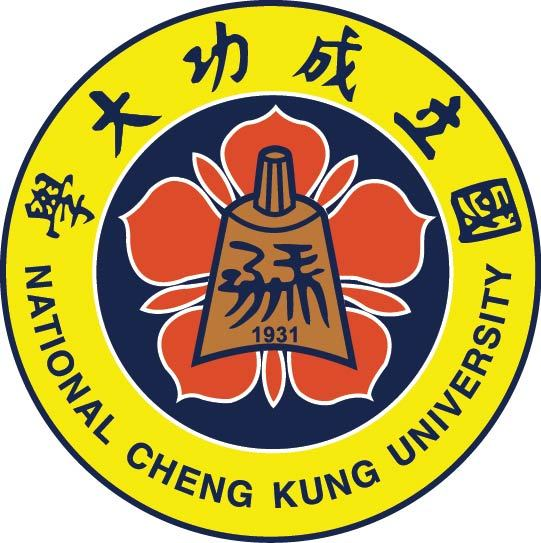SMART MEDIA & INTELLIGENT LIVING EXCELLENCE LAB. (SMILE LAB)
Research Field
Pau-Choo (Julia) Chung (S’89-M’91-SM’02-F’08) received the Ph.D. degree in electrical engineering from Texas Tech University, USA, in 1991. She then joined the Department of Electrical Engineering, National Cheng Kung University (NCKU), Taiwan, in 1991 and has become a full professor in 1996. She served as the Head of Department of Electrical Engineering(2011-2014), the Director of Institute of Computer and Communication Engineering (2008-2011), NCKU. She was elected Distinguished Professor of NCKU in 2005 and received the Distinguished Professor Award of Chinese Institute of Electrical Engineering in 2012. She also served as Program Director of Intelligent Computing Division, Ministry of Science and Technology (2012-2014), the Director General of the Department of Information and Technology Education at Ministry of Education, Dean of Miin Wu School of Computing at NCKU. Currently, she is the Dean of College of Electrical Engineering and Computer Science at NCKU, Taiwan.
Dr. Chung’s research interests include computational intelligence, machine learning, computational pathology, medical image analysis, and pattern recognition. She currently is focusing on Whole Slide Image (WSI) pathology image analysis and has built ALOVAS platform. She served as an Associate Editor of IEEE Transactions on Neural Network and Learning Systems and an Associate Editor of IEEE Transactions on Biomedical Circuits and Systems. Currently she is an Associate Editor of IEEE Transactions on Artificial Intelligence.
Dr. Chung served on two terms of ADCOM member (2009-2011, 2012-2014), the Chair of CIS Distinguished Lecturer Program (2012-2013), the Chair of Women in Computational Intelligence (2014), and the Vice President for Members Activities of IEEE CIS Society. She also served on two terms of BoG member in IEEE Circuit and Systems Society. She is a Member of Phi Tau Phi honor society and is an IEEE Fellow since 2008. Currently she serves as the Vice President for Education of IEEE CIS.
SMART MEDIA & INTELLIGENT LIVING EXCELLENCE LAB. (SMILE LAB)
This laboratory was founded in 1991 with a focus on improving and applying neural networks to medical image processing and analysis, and as such, the laboratory's early research was centered around neural networks, pattern recognition, and image processing.
Over the years, the laboratory has published numerous journal and conference papers on topics such as image processing and recognition methods, improving models, and their application to medical image processing and analysis. Since 2000, the laboratory has expanded its research to include interactive diagnosis of medical images and smart remote home care. As a result, video multimedia data analysis and computer vision, multimedia data transmission and storage, interactive environments for real-time medical image diagnosis, and integration of sensors for home patient care have become some of the laboratory's key research areas.
Based on this, in 2004, the laboratory changed its name from "Neural Network Lab." to "Smart Media & Intelligent Living Excellence Lab." to better reflect its research goals. Under this new name, the laboratory's related research topics include intelligent computing, computer vision, video image analysis, next-generation static image coding standards, multimedia data transmission, medical image transmission and storage standards, remote consultation systems, structured electronic medical records, video image analysis for caregiver applications, and augmented reality. The laboratory's research is driven by its application needs, and it develops its core technologies internally with the goal of achieving complete system planning and implementation.
Recently, our laboratory has been devoted to conducting research in the field of medical pathology. Artificial intelligence (AI) digital pathology analysis is playing a promising role in the healthcare system, providing physicians with more objective analysis of results and helping them to calculate pathology indicators quantitatively, thereby improving the efficiency and accuracy of pathology diagnosis. We have built a "Cooperative A.I. Pathology Analysis Platform" to provide an environment where physicians can actively participate in the process of building AI pathology models and use the results to speed up clinical diagnosis. Collecting data from different hospitals provides a large amount of data for developing pathology AI analysis models. However, data privacy is a critical issue, and the data diversity from different hospitals also poses a great challenge to model training. To address this, we are developing a novel federated learning-based training platform to efficiently and effectively train AI models with heterogeneous data from different hospitals without exchanging the data. Our laboratory researches various topics in pathology, such as robust models against WSI color variation, liver tumor detection and analysis, and lipid droplet segmentation.
Dr. Chung’s research interests include computational intelligence, machine learning, computational pathology, medical image analysis, and pattern recognition.
Dissertation:
1. Pau-Choo Chung (2021). IEEE CIS VP-Education Vision Statement [Society Briefs]. IEEE Computational Intelligence Magazine, 16(1), 6-7.
2. Chao Ting Li, Hung Wen Tsai, Tseng Lung Yang, Jung Chi Lin, Nan Haw Chow, Yu Hen Hu, Kuo Sheng Cheng, Pau Choo Chung (2020, Oct). ImbalanceEffective Active Learning in Nucleus, Lymphocyte and Plasma Cell Detection. iMIMIC/MIL3ID/LABELS@MICCAI 2020, pp. 223–232.
3. Ting-An Yen, Hung-Chun Hsu, Pushpak Pati, Maria Gabrani, Antonio Foncubierta-Rodriguez, Pau-Choo Chung (2020, Jun). NINEPINS: Nuclei Instance Segmentation with Point Annotations . arXiv:2006.13556v1 [eess.IV].
4.Chien-Yu Chiou, Wei-Cheng Wang, Shueh-Chou Lu, Chun-Rong Huang, PauChoo Chung, and Yun-Yang Lai (2020, Jan). Driver Monitoring Using Sparse Representation With Part-Based Temporal Face Descriptors. IEEE Transactions on Intelligent Transportation Systems, pp. 346-361, Vol 21, No. 1.
5,Qi-En Xiao, Pau-Choo Chung, Hung-Wen Tsai, Kuo-Sheng Cheng, Nan-Haw Chow, Ying-Zong Juang, Hann-Huei Tsai, Cheng-Hsiung Wang, and Tsan-An Hsieh (2019, Dec). Hematoxylin and Eosin (H&E) Stained Liver Portal Area Segmentation Using Multi-Scale Receptive Field Convolutional Neural Network.
IEEE Journal on Emerging and Selected Topics in Circuits and Systems, pp.
623-634, Vol 9, No. 4.
Award:
1."Outstanding Information Technology Talent Award" for the year 2021
2.IEEE CIS Meritorious Service Award
3.Best Paper Award, IEEE International Conference on Artificial Intelligence Circuits and Systems (AICAS 2019)
4.Merit Award, IPPR Technology Innovation and Industrial Applications
5.Merit Award, 2015 APICTA Research and Development (R&D)
Educational Background: 1991 Ph.D. in Electrical Engineering, Texas Tech University, USA //1983 M.S. in Electrical Engineering, National Cheng Kung University, Taiwan //1981 B.S. in Electrical Engineering, National Cheng Kung University, Taiwan"
